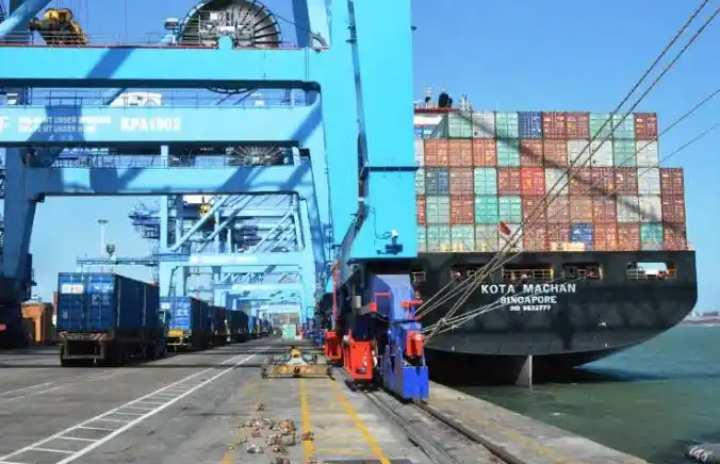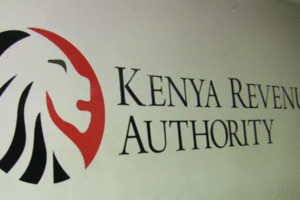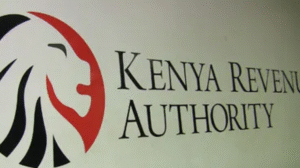The Kenya Ports Authority (KPA), one of the country’s most big state corporations, has come under intense scrutiny due to questionable financial practices and large sums of money that seem to have been misused or unaccounted for.
This financial mismanagement threatens the very integrity of an institution that is central to Kenya’s economic infrastructure, given the importance of port services in trade and transportation.
A staggering Sh49 million was paid as unauthorized overtime allowances to employees who were reportedly in training.
This raises major questions regarding internal controls and oversight within KPA.
Typically, overtime allowances are granted when employees work beyond their stipulated hours, yet in this case, the employees were supposedly engaged in training activities.
This practice is not only unjustifiable but also indicative of poor management that allows such payments to go unchecked.
Adding to the irregularities, Sh9 million was handed to former acting Managing Director John Mwangemi as remuneration benefits.
The legitimacy of these payments has been called into question, as it remains unclear what criteria were used to justify such a large sum.
Furthermore, Mwangemi received Sh17.2 million in acting allowances over a span of 20 months.
These payments suggest that a culture of financial impunity may have pervaded the upper echelons of KPA’s leadership.
In addition to these payments, Sh12.9 million was paid in subsistence expenses without proper supporting documentation.
Subsistence allowances are typically provided for work-related travel expenses, but the lack of clear documentation suggests a possible misuse of funds.
Moreover, Sh25 million was given to two advertising consultancy firms without any clear justification for their services.
This raises concerns about the procurement process and whether due diligence was exercised before awarding these contracts.
The issue of mismanagement extends beyond financial irregularities, as evidenced by the Sh11 million spent on corporate social responsibility (CSR) trips, with no verifiable evidence of the activities conducted.
This casts doubt on whether these funds were used for the intended purpose or if they were funneled elsewhere.
Additionally, Sh26 million was spent on a consultancy contract awarded to a firm that lacked the necessary capacity to deliver the services it was hired for.
This not only reflects poor judgment but also points to potential collusion or corruption in the awarding of contracts.
Other irregular expenses include Sh1.6 million in fuel costs for vehicles not listed in KPA’s asset register, with 13,568 liters of fuel being used under unclear circumstances.
This lack of accountability in fuel consumption hints at systemic weaknesses in KPA’s asset management.
Furthermore, Sh2 million was spent on reserving a conference facility a full year before the event took place, an expenditure that seems premature and unnecessary.
One of the more glaring examples of financial mismanagement is the Sh111 million from port pass sales that remain in doubt due to a disabled control system.
Without proper oversight, this revenue stream is left vulnerable to exploitation, further eroding trust in KPA’s internal controls.
Compounding these issues is the fact that KPA failed to collect Sh8 million in fees from 84 jetties along the coastline, suggesting that the institution is not fully leveraging its assets to generate revenue.
The KPA’s agreement with African Gas and Oil Company Limited (AGOL) also sheds light on potential revenue losses. According to financial statements, KPA should have collected license revenue of Kshs 176,143,000, of which Kshs 65,915,532 was from revenue earned on Liquefied Petroleum Gas (LPG) handled by AGOL.
However, KPA failed to verify AGOL’s actual revenue and instead based the license fee on estimated service revenue.
The rate charged was USD 22.65 per tonne of LPG, which was higher than the USD 22.64 agreed upon in the license agreement.
While this discrepancy may seem minor, it raises concerns about KPA’s revenue collection practices, particularly when dealing with high-value contracts.
The license agreement, dated September 21, 2007, grants AGOL the right to develop and operate a common user LPG handling facility at the Port of Kilindini.
This agreement included provisions to ensure non-discrimination and fair competition.
However, the agreement’s financial provisions, such as the quarterly remittance of 25% of AGOL’s revenue, appear to have been poorly managed.
KPA’s reliance on estimated revenues, rather than verified figures, undermines its ability to collect what is rightfully owed.
The lack of evidence supporting the USD 22.65 rate raises further suspicions about the transparency and accuracy of KPA’s financial dealings with AGOL.
The financial irregularities at the Kenya Ports Authority highlight systemic issues in the institution’s management and oversight.
From unauthorized overtime payments to questionable consultancy contracts and mismanagement of key revenue streams, these practices undermine the efficiency and trustworthiness of KPA.
As a state corporation, KPA plays a critical role in Kenya’s economic ecosystem, and its mismanagement has wide-ranging implications for the country’s trade and logistics sectors.
Addressing these issues will require rigorous internal audits, a reassessment of financial controls, and potentially holding individuals accountable for the financial mismanagement that has occurred.
Without these steps, KPA risks further eroding public trust and its ability to serve as a cornerstone of Kenya’s economy.





















Add Comment